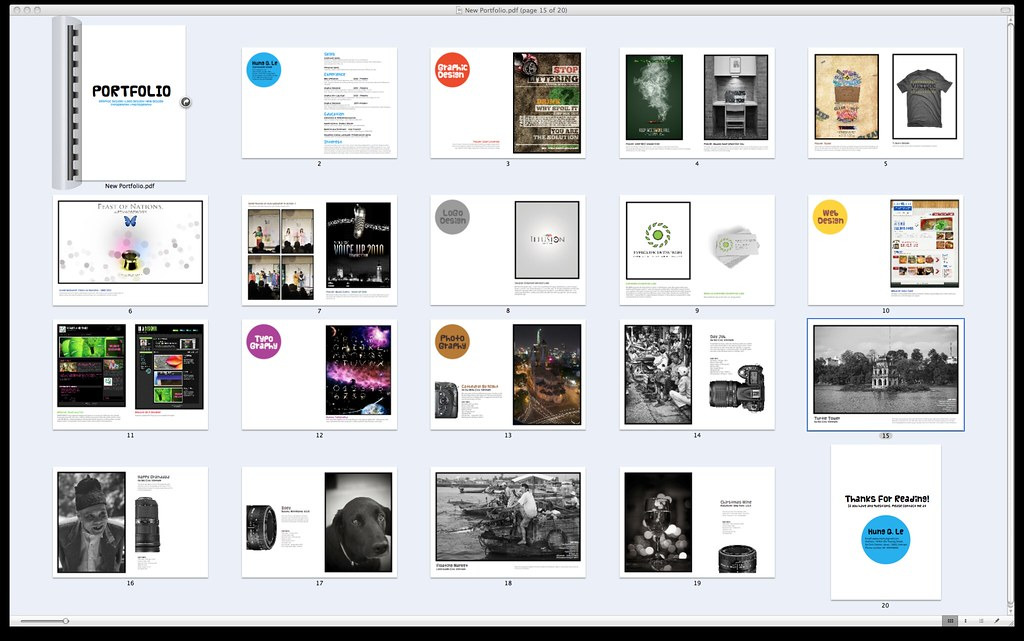eCommerce is a sector that is expanding quickly. It provides enormous opportunities for those looking to pursue and establish a profession in a lucrative and rewarding field.
If you’re a business-savvy person or have experience in the consulting field, then working as an eCommerce consultant can be the perfect job for you.
How to become an eCommerce consultant? Don’t get yourself stressed! This article will recommend a detailed path. So you can easily start and climb the career ladder. Scroll down to get tips to be a successful expert!
Who Is An Ecommerce Consultant?
Before learning the steps to become an eCommerce consultant, you should get an overview of this profession.
These professionals specialize in creating sales strategies online. They may market the company’s offerings or operate as independent contractors.
The specialists frequently work with other team members of a marketing department or business’s online sales.
Also, they support their companies in improving their websites and the user experience for their clients. They may see increased revenue, strengthened brand loyalty, and repeat business.
The activities an e-commerce specialist completes may change every day. However, they can anticipate several fundamental duties in this role.
- Develop new strategies and audit the existing ones
- Work with developers and designers to create ecommerce websites
- Set up e-commerce goods shipping and fulfillment procedures
- Create interesting product descriptions and add goods to the site
- Establish payment and order processing settings for an online store.
- Oversee daily website operations and implement customer experience initiatives
- Report website traffic, opportunities, and sales data
- Make suggestions to enhance the store’s performance
- Track analytics and optimize marketing campaigns
- Implement and improve SEO strategies
- Research new trends

How To Become An Ecommerce Consultant?
There is no fixed career path to become an eCommerce consultant. You can earn a degree first or gain knowledge from real-life experience. However, it is best to focus on specific areas to succeed in marketing.
Consider the following steps to start your job as an ecommerce consultant!
1. Develop Credentials
As shared above, gaining a degree before working as an ecommerce consultant is not mandatory. However, you will attract more potential clients with a degree.
Therefore, consider obtaining a degree in relevant areas such as marketing, business, or computer science.
A high school diploma is not sufficient to become an expert in e-commerce because most firms choose to select applicants with a bachelor’s degree.
You can enroll in the following classes to assist you in becoming ready for this position during your undergraduate studies:
- Pricing Analysis
- Marketing Analytics
- Brand Management
- Digital Marketing
- Sales Forecasting
- Direct Marketing
- Lead Generation
Besides, pursuing additional education apart from the formal learning landscape is advisable.
For example, you can consider taking courses in UX and UI design. Also, earning credentials from e-commerce platforms or getting relevant certifications online is a good idea.
Furthermore, concentrate your studies on acquiring the talents you know potential companies seek. You can look at a few popular certifications like:
- CIW E-Commerce Specialists
- HubSpot eCommerce Marketing
- Interactive Marketing and eCommerce
2. Build Experience
The next thing you should do is improve your e-commerce experience. You may accomplish this in many ways.
If you are a seasoned Shopify website developer or designer, you must always have some experience working with ecommerce websites.
Consider creating your sites and e-commerce platforms for practice if you’re beginning from scratch so you can showcase your skills.
You may open a Shopify account and start building test sites to evaluate how well you can make every shop component work together seamlessly.
Start by applying for entry-level roles with ecommerce firms after being self-assured enough to hunt for employment prospects.
It will allow you to develop your talents and expand your professional circle. Also, it increases your probability of being employed by larger companies.

3. Strengthen Marketing Knowledge
Most businesses seeking e-commerce experts aren’t only interested in assistance with creating an excellent website. Additionally, they need help in adding new clients to their sales channel.
Knowing the marketing environment well will enable you to provide some pertinent advice as you go.
Start by being familiar with web optimization fundamentals, paying particular attention to off-page, on-page, and technical SEO strategies.
Moreover, learn how businesses utilize content advertising to draw customers to their websites and hone your content creation abilities.
Knowing the customer funnel phases and the way they correspond to various content methods is beneficial.
Feel free to develop your marketing via social media and email abilities. They are valuable when seeking new approaches to promote online shops.

4. Hone Skills
These experts are proficient in various fields, including marketing, website design, and development. However, having a thorough grasp of and love for e-commerce is the primary requirement for these consultants.
Most experts receive training while they are working. They may also enroll in various online classes to further their expertise in the industry.
If you pursue this profession, you may need to develop the following skills during your career:
– Technical skills
To build and maintain ecommerce websites, ecommerce experts employ a variety of software programs and technologies.
They should be familiar with standard e-commerce technologies like Shopify with a foundational understanding of coding. It’s also crucial to know about well-known advertising platforms like AdRoll.
– Sales and marketing skills
As an e-commerce consultant, your primary responsibility is assisting the businesses you deal with in growing their sales.
In addition to understanding email and social media use, ecommerce experts should be familiar with content marketing and SEO.
– Business development
Ecommerce consultants must be able to assess business conditions and identify areas for expansion.
You must know how to analyze data and come to wise conclusions on improving store performance.
– Communication
As a professional in e-commerce, having strong communication abilities is crucial. It helps you in explaining complex sales and marketing concepts in simple words.
You may also use this skill to create comprehensive papers that are simple for your clients and coworkers to grasp.
– Critical thinking
A crucial part of an e-commerce expert’s work is investigating and comprehending campaign analytics.
You quickly identify patterns and trends by improving your critical thinking abilities, enabling you to optimize all campaigns.
– Teamwork
E-commerce specialists work with many marketing and sales experts to ensure all campaigns succeed.
For insurance, they may be part of a team that includes sales managers, marketing directors, graphic designers, copywriters, photographers, and social media experts.

5. Choose The Business Strategy
Consider how you want to advance your career after acquiring the knowledge and expertise necessary to prosper in the ecommerce environment.
If ecommerce businesses contact your brand for assistance in developing and expanding their stores, you can think about collaborating with a PR firm to provide support.
You may serve as an internal consultant, marketing specialist, or designer for an established e-commerce business, advising team members. Besides, you might also think about going independent and starting your own “consulting” company.
The latter option requires you to be dedicated to building your brand and marketing to potential customers. Additionally, you must possess strong networking abilities to spread out and forge lucrative new connections.
6. Build Your Portfolio
To demonstrate your expertise and the fantastic job you can accomplish for clients, consultants must have a portfolio site. Consider these tips to build your portfolio:
– Choose a suitable platform
You should choose a popular platform to publish your portfolio. For instance, you can consider WordPress, Weebly, Wix, and Squarespace.
WordPress may appear slightly complicated at first glance, but it saves you money because you only have to pay once for a contemporary website template.
– Add content
Add the necessary information to your portfolio. It includes work samples, the “About” section, contact information, and case studies. Ensure to proofread these things before publishing your portfolio.
– Show the best products
You should only showcase the best products to show potential clients or employers your work quality. You might develop an extra page on the site to present your examples to make everything simpler for them.
– Publish
After adding your best products and proofreading your portfolio, press the button and make it online on your website.

7. Search For Jobs
Once you have the vital credentials, experience, and skills, you can look for eCommerce consultant jobs. You can search job boards, LinkedIn, or freelance websites.
You can also network with other eCommerce professionals and attend industry events to find job opportunities.
8. Stay Updated
The eCommerce industry is a dynamic and ever-changing landscape where staying ahead of the curve is paramount to success.
Being updated with the latest trends, technologies, and best practices is crucial to achieving and maintaining success in this industry.
Attending industry events, such as conferences and trade shows, is an effective way to stay current with the latest developments.
Attending these events lets you network with peers and industry leaders and learn from their experiences and insights.
Reading industry blogs can also help you stay informed of emerging trends and technologies.
Joining eCommerce communities, such as online forums and social media groups, can help you stay informed.
Participating in these communities allows you to engage with other eCommerce professionals, share knowledge, and learn from their experiences.

Advantages and Disadvantages
Before deciding whether to become an ecommerce consultant, there are several things to remember. I’ve listed the primary benefits and drawbacks for you:
Advantages:
- Flexible
- Possibility of setting up a company from home
- Low starting expenses needed
- Rewarding work
- Scalable
- No overhead expenses
- Meaningful relationships for business
- High margins
- Fast build time
- Able to choose the customers to collaborate with
- Able to control workload
- Unlimited potential income
Disadvantages:
- Crowded space
- More extended sales process
- Inconsistent work
- Isolation
- Stressful work
- Time commitment
- Little physical activity
- Demanding job
Job Outlook and Salary
According to ComputerCareers.org, e-commerce consultants can earn a median yearly income of $122,276. Your educational background, skill set, and professional experience may all impact how much money you make as an expert in e-commerce.
Your salary may also depend on factors like the scale of your business and the living expense in your neighborhood.
Many e-commerce professionals also get benefits from their companies apart from annual pay. Employers frequently provide the following advantages to e-commerce specialists:
- Flexible schedule
- Dental insurance
- Wellness program
- Health insurance
- Vision insurance
- Paid sick time
- Paid time off
- Employee discounts
Over the following ten years, a significantly quicker growth than average is anticipated for ecommerce consultant employment.
As more businesses look for assistance in adopting ecommerce strategies and solutions, there will be a rise in demand for these experts.
Businesses will require the advice of e-commerce experts on using technology to enhance their enterprise and provide excellent customer service.
In particular, the US Bureau of Labor Statistics expects a promising job outlook for all experts working in this sector. By 2026, they project e-commerce will be responsible for 450,000 employment overall. It includes the professionals:
- Ecommerce Experts
- Stock Clerks
- Retail Salespersons
- Web Developers
- Market Research Analysts
- Customer Service Representatives
Key Learnings
It’s difficult but not unattainable to become an eCommerce consultant. Each stage involves a lengthy learning curve and lots of trials.
So, please see the light at the other end if you begin to feel defeated. When your career begins, picture the sense of accomplishment you’ll experience. Your efforts will certainly be worthwhile!
Keep the following in mind as you begin your path to becoming an eCommerce consultant:
- Gain experience: After having the necessary abilities, you can look for clients or apply for a position.
- Practice: Start a business or website and use all you’ve learned.
- Take new job opportunities: Feel free to experiment along the road. Be proactive in seeking out new possibilities.
Following the steps outlined in this post, you can become a successful eCommerce consultant and help businesses achieve their goals.
